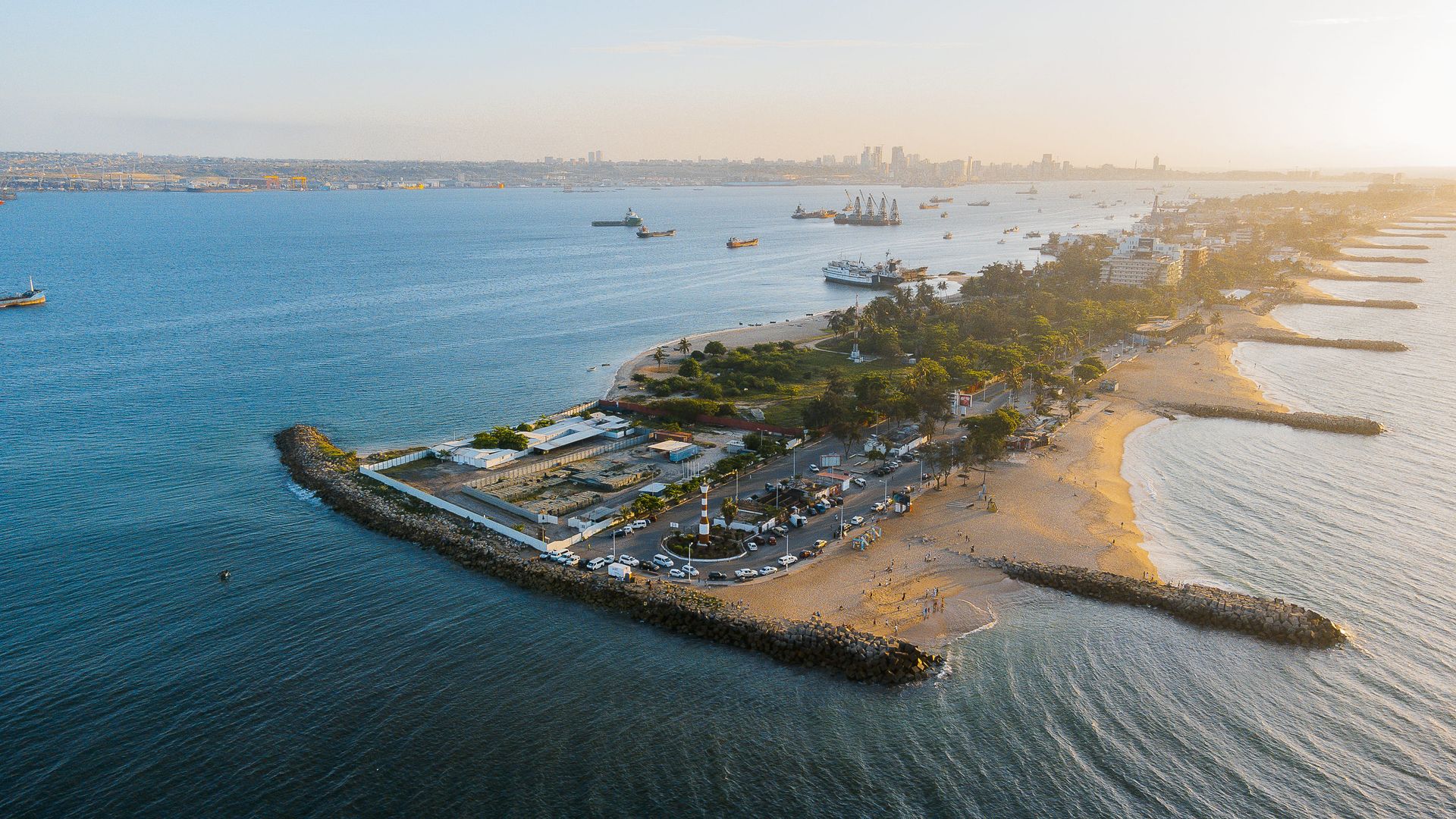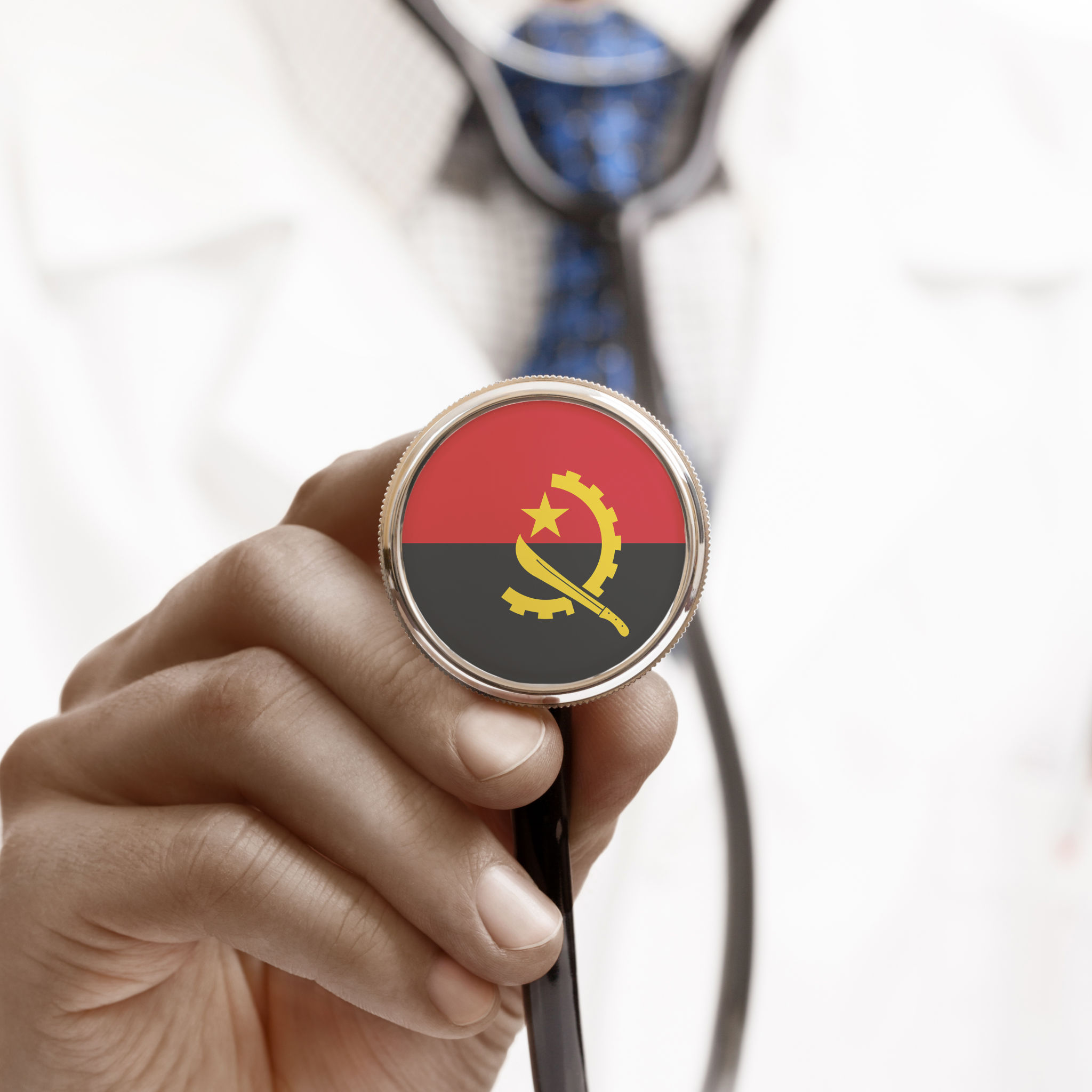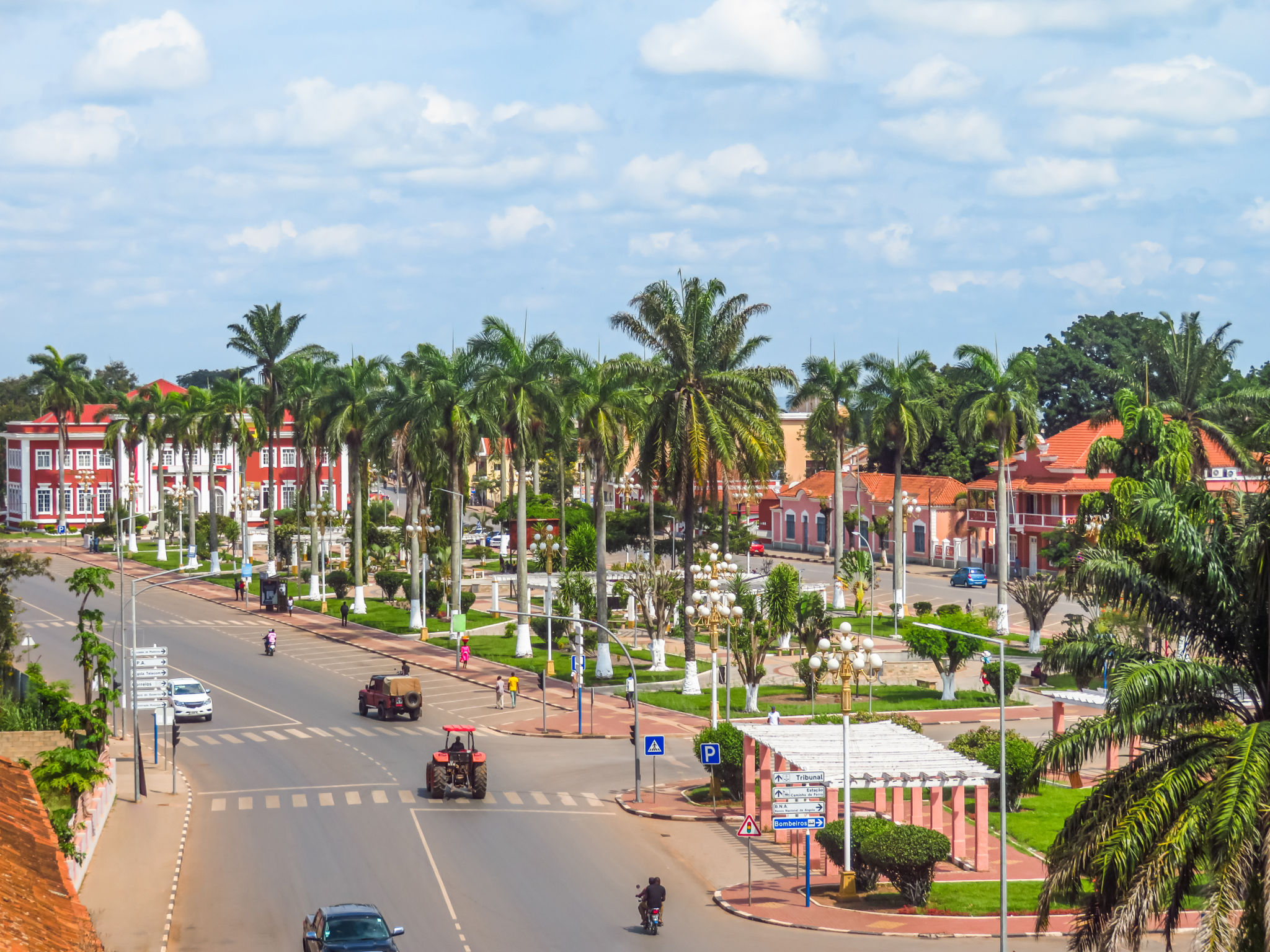Is Angola Safe to Visit? A Realistic and Honest Guide to Travel with Confidence
Updated on October 25, 2025.
Is Angola Safe to Visit?
Planning a trip to Angola? Discover the truth about safety, where to stay, how to move around securely, and how LeluTour can support you every step of the way.
Angola is one of Africa’s most fascinating and underrated countries. With its dramatic Serra da Leba curves in Lubango and the striking desert landscapes of Namibe, Angola offers a raw beauty that few destinations can match. But for many first-time visitors, one question stands out: Is Angola safe to visit?
The answer is yes, with the right information and support, Angola is safe to explore and enjoy. In fact, outside of the capital Luanda, Angola is known for its peaceful cities, humble and welcoming communities, and very low levels of crime. Towns like Lubango, Namibe, Benguela, and Huambo are calm and orderly, and extremely secure for visitors.

According to the U.S. Department of State and UK Foreign Office, Angola is classified under “Exercise Increased Caution,” mainly due to petty crime in Luanda. Violent incidents involving tourists are rare, and the vast majority of travelers experience no issues when they stay alert and use reliable transport.
Below is a realistic and comprehensive safety guide to help you plan your trip with peace of mind.
How Safe is Luanda for Tourists?
Luanda is the bustling heart of Angola, a mix of colonial charm, modern life, and a rich cultural scene. Like any capital, it has areas that are best avoided, but overall it’s a safe and dynamic city, especially when you stick to trusted neighborhoods and use reliable services.
Examples of Safe and Recommended Neighborhoods:
Talatona, Alvalade, Ilha do Cabo and Miramar are among the safest neighborhoods. Other well-located areas include Ilha de Luanda and the Marginal coast.
These neighborhoods are home to many hotels, restaurants, supermarkets, and services catering to both locals and visitors, with a visible sense of safety and comfort.

Areas to be cautious:
As in any large city, avoid walking alone at night in unfamiliar places or less-developed districts like Sambizanga, Cazenga or Viana, unless you’re accompanied by a guide or local. Always use trusted transportation and stay alert in busy public places.
Crime in Angola: What You Should Know
Violent crime against tourists is very rare in Angola. The most common incidents are crimes like phone snatching or bag theft in crowded areas.
Tips to stay safe:
⁃ Be aware of your surroundings in markets or on public transport
⁃ Keep your phone and valuables secure
⁃ Use crossbody bags or pouches
⁃ Don’t walk in isolated streets at night
⁃ Choose registered ride-hailing apps, such as UGO, private drivers or transfer services
There’s a growing tourist police force in Luanda and other urban areas to support visitors, making the experience increasingly safe and organized.
Safety in the Provinces
Once you leave the capital, the pace of life slows and the sense of community deepens. Cities like Lubango, Namibe, Benguela, and Huambo are known for being peaceful and welcoming. Independent sources, including SmartTraveller.gov.au, describe the provinces as “largely calm, with a low risk of crime affecting tourists,” though rural travel still requires planning and good local guidance.
That said, some regions, notably Cabinda and remote border zones, may experience occasional unrest or have restricted access. Always check with your tour operator or the latest government advisories before traveling off-grid.
Benguela and Lobito
Located on the central coast, Benguela and its port city Lobito are among Angola’s most popular destinations for visitors. They’re known for beautiful beaches, colonial architecture, and a calm, friendly atmosphere.
Petty crime is rare, especially along the seaside and hotel areas.
Walking during the day is safe and pleasant, locals often greet travelers with curiosity and kindness.
Evening strolls along Restinga Beach or Baía Azul are common, though it’s still best to use taxis or your driver after dark.
💡 Tip: Many visitors describe Benguela as “the perfect first stop outside Luanda” ,safe, scenic, and welcoming.
Lubango (Huíla Province)
Lubango sits in the southern highlands and is surrounded by spectacular mountain scenery, including the Serra da Leba pass and the Christ the King (Cristo Rei) statue overlooking the valley.
The city itself is calm and considered very safe for tourists.
Roads are well-maintained, and locals are used to visitors heading to Tundavala Gap or Namibe.
Lubango is also one of the best bases for exploring Namibe Desert, a region known for its landscapes and friendly local communities.
Namibe (Moçâmedes)
Namibe, further south on the coast, feels peaceful and authentic. Crime is minimal, and locals often go out of their way to help travelers.
The town is small, walkable, and has a laid-back atmosphere.
Most visitors come for desert excursions, Iona National Park, or fishing trips, all of which are safe when organized through licensed guides or your DMC.
Mobile signal can be weak in remote desert areas, so guides carry radios or satellite phones for safety.
Malanje Province (Home of Kalandula Falls)
Malanje is home to one of Angola’s most spectacular natural landmarks, Kalandula Falls. The area is rural but friendly, and guided tours are considered safe.
Roads from Luanda to Malanje (about 5–6 hours) are in fair condition, though sections can be rough, so traveling with a professional driver is recommended.
Once in the province, accommodation and restaurants are simple but welcoming.
The biggest concern here isn’t crime, it’s distance from medical facilities, so travel insurance and a first-aid kit are essential.
When Traveling in the Provinces
Angola’s countryside is one of its greatest treasures, and also where local guidance matters most. Infrastructure outside the main cities is still developing, which means distances can be long and GPS coverage unreliable.
For a safe and smooth journey:
- Always travel during daylight hours.
- Let someone (your hotel or DMC) know your route and estimated arrival time.
- Use local guides who know the terrain, road conditions, and local customs.
- Carry water, snacks, and basic supplies for longer drives.
With the right planning and support, the provinces offer some of Angola’s most genuine and unforgettable experiences, from the red dunes of Namibe to the misty highlands of Lubango.
Health and Medical Support in Angola
Recommended vaccinations include hepatitis A, typhoid, yellow fever, and tetanus.
Malaria
There is a risk of malaria in Angola, especially in rural and coastal areas. Here’s how to protect yourself:
✔ Use strong mosquito repellent, particularly at night
✔ Wear long clothing during the evening
✔ Consider speaking with your doctor about preventive medication
Hospitals & Clinics
Luanda has several reliable private clinics and hospitals, including:
✔ Luanda Medical Center - located in Maianga
✔ Clínica General Katondo - located in Talatona
✔ Clínica Girassol - located in Alvalade
✔ Cligest - located in Maculusso
✔ Clínica Sagrada Esperança - located in Ilha de Luanda

The staff may speak English. For added comfort, we recommend having a guide or support contact who speaks Portuguese.
Private healthcare in Luanda is of good quality by regional standards. A consultation at a private clinic typically costs € 30 – €80, depending on the facility and doctor’s specialty. Emergency treatment or overnight stays can range from €40 – €200 per night.
Outside Luanda, clinics are smaller and less equipped. Lubango, Benguela, and Huambo have functioning provincial hospitals and a few private clinics, but serious cases are usually transferred to Luanda for advanced care.
Travelers heading to Namibe or remote parks (Iona, Kalandula, etc.) may be 4 – 8 hours by road from major hospitals, so carrying a basic first-aid kit and having access to an emergency evacuation plan or travel insurance is strongly recommended.
For routine issues , dehydration, mild infections, or malaria tests, local pharmacies and clinics are generally reliable. Always carry mosquito repellent and bottled water, and consider travel insurance covering air evacuation to Luanda for peace of mind.
Cultural & Local-Context Risks
Understanding local culture, social norms and regional dynamics can significantly enhance safety and enjoyment.
Cultural Norms & Etiquette
Portuguese is the official language; while English is often spoken in major hotels, in many places local Bantu languages dominate. Learning basic Portuguese greetings (“bom dia”, “obrigado/-da”) is appreciated.
Photography: avoid taking photos of government buildings, military installations, police, or sensitive infrastructure. Tourists have been cautioned against using cameras/binoculars near secure zones.
Social behaviours: public displays of affection may be frowned upon in more traditional settings; local customs around greetings, respect for elders and local hierarchy matter.
Drug laws: Use or possession of illegal drugs is severely punished.
Cultural & Social-Risk Considerations
Language barrier: In many parts of Angola, English is limited. Having someone who speaks Portuguese (or listening to local advice) reduces misunderstandings.
Mis-perception of ‘safe zones’: Just because you are staying in a hotel in a “tourist area” doesn’t mean all surrounding neighbourhoods are equally safe, transition zones can quickly change after sunset.
Respecting local conflict legacy: Some rural or less developed areas still bear wartime legacies (landmines, unexploded ordnance) and local tensions.
Gender, LGBT & minority travellers: Social norms may be more conservative. Awareness of local attitudes helps; public behaviour that is acceptable at home may not be in all settings in Angola.
Road & journey planning: In rural or remote provinces, roads may be unlit and dangerous at night; breakdowns or delays can lead to vulnerability. Ensure you have planned transport rather than improvising late-night travel.
Engaging with communities/tourism: Some local tribes or communities may be unaccustomed to tourism or prefer privacy, always ask permission, compensate fairly, and avoid exploitative behaviour.
Transport & Getting Around Safely
Traffic in Luanda is heavy during rush hours, typically between 6:30 to 8:30 in the morning, and 4:30 to 6:30 in the afternoon. Outside of those periods, traffic flows more easily.
To move around safely, we recommend:
✔ Private drivers
✔ Ride-hailing apps like UGO and Heetch
✔ Avoid walking in unknown areas alone at night
✔ Avoid taking taxis directly from the street
Where to Stay: Safe and Comfortable Options
Luanda offers several accommodation categories to suit different travel styles:
Luxury:
Intercontinental Luanda Miramar
EPIC SANA Luanda
Hotel HCTA
Mid-range:
Skyna Hotel
Hotel Presidente Luanda
Hotel Trópico
Hotel Baía
Budget:
ArtHouse (Ilha de Luanda)
Faias Boutique Hotel (Luanda Downtown)
Local guesthouses in secure neighborhoods
All of these are in well-served, convenient areas, ideal for both leisure and business travelers.
Myth vs Reality: Can Women Travel Alone Safely in Angola?
Myth: “Angola isn’t safe for women traveling alone.”
This is one of the most common concerns among potential visitors. Because Angola is still an emerging destination, information online can be limited, and outdated reports often paint an exaggerated picture of risk.
Reality:
Solo women can absolutely travel safely in Angola, with the right preparation and local support. Many female travelers visit for work, humanitarian projects, or leisure, and find Angolans to be friendly, respectful, and welcoming, especially when cultural norms are understood and followed.
Angolan culture tends to be polite and community-oriented. Women are generally treated with courtesy, and solo female travelers often attract friendly curiosity rather than hostility. That said, like anywhere else, situational awareness and good planning are key.
Support for Tourists: You’re Never Alone
Yes, Angola has a visible police presence and a growing tourist support system. But for even greater peace of mind, LeluTour is here for you.
With LeluTour, you can:
- Count on local guides to accompany you throughout your stay, not just for tours
-Receive assistance at the airport, hotel, or anywhere you need
-Get full travel support so you don’t miss important highlights
-Feel safe knowing you’re backed by a trusted Angolan tourism company
Whether you’re in Angola for a few days or a longer adventure, we ensure your journey is smooth, secure, and unforgettable.

Angola is much more than a hidden gem, it’s a safe and rewarding destination waiting to be explored. The country is rich in natural wonders, history, music, and hospitality. And with the support of LeluTour, you’ll discover the best of Angola with confidence and ease.
As one of our guests from Canada put it:
“I was nervous before coming, but after a few days I felt completely safe, people were helpful, curious, and respectful. Having local guides made all the difference.”
Ready to explore Angola safely and authentically?
Contact LeluTour today, and we’ll take care of everything, so you can focus on enjoying the adventure.
👉🏾 Continue Reading: Angola for First-Time Visitors
If you’re planning your very first trip to Angola and want to feel fully prepared before you go, we recommend reading our detailed guide.
👉🏾 Cruising into Angola: What to Expect When Your Ship Docks in Luanda
Arriving in Angola by sea? Here’s what to expect at the port of Luanda, from customs and safety tips to the best nearby attractions, restaurants, and shore excursions.
